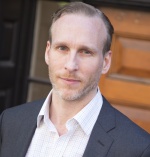The Issues We’re Taking to the Hill
By Michael Hamill Remaley, Senior Vice President, Public Policy & Communications
Michael Hamill Remaley, Senior Vice President, Public Policy & Communications
Last month, I wrote in this column about Philanthropy New York’s 2018 Policy Slate, which outlines the federal, state and local issues and actions that are top priorities for the year. Now, we’re looking toward Foundations on the Hill, the annual advocacy event in which regional associations and their members meet with their congressional leaders to talk about philanthropy’s work in communities and the policy issues that would help us do our work better.
Foundations on the Hill is taking place Monday, March 12 to Wednesday, March 14. Any funders interested in joining this advocacy event should contact me for more information.
In our meetings with the legislative staff of our Senators and Representatives, we usually start with members talking about the work that they do to support nonprofits in communities all across the region. We then help educate legislative staff about the policy issues that broadly affect nonprofits and foundations, topics that are usually not top-of-mind for folks in DC. The most pressing issues we plan to discuss with your legislators this year include…
- The effects of the new tax bill on nonprofits and the potential for a Universal Charitable Deduction.
- The disastrous effects of the proposed repeal of the Johnson Amendment.
- The Charity Act, which contains items on the excise tax on private foundations, donor advised funds, and other nonprofit support policies.
- Full funding for the 2020 Census and attention to concerns about its execution.
Some of these issues are extraordinarily pressing and may see action in the coming months. Others necessitate developing conversations with legislators now so that we can build support over the coming years.
We were immensely relieved when, during the lead-up to passage of the GOP tax bill, the Senate Parliamentarian ruled that the provision weakening the Johnson Amendment had to be stripped out of the bill because it was not a budgetary issue. But we are already hearing that GOP leaders in Congress are looking to attach a repeal of the Johnson Amendment to other legislation in the pipeline. We will be talking with our congressional delegation about the importance of maintaining nonprofit nonpartisanship and why weakening the Johnson Amendment would be extremely harmful to nonprofits’ independence.
Full funding for the 2020 Census is another very timely issue that requires action in Congress this year. The census produces constitutionally mandated data that we all depend on for business, community planning, representation and distribution of federal funds. If the lead-up and planning for the 2020 Census is not adequately funded by Congress and the implementation is not fair in counting hard-to-count communities the data could all be wrong for ten years, with deep damage to our country. We will be talking with our representatives about the many ways the Census is important for New York in particular, and why it is important to the specific communities they represent.
The Charity Act is a piece of legislation introduced in 2017 that is currently looking for additional sponsors. It (1) expands the IRA charitable rollover to allow for distributions to donor advised funds; (2) simplifies the private foundation excise tax to a flat rate of 1 percent and (3) contains language calling for preservation of the full value and scope of the charitable deduction. We will be discussing that legislation and advocating for its component parts.
One of the most ambitious objectives of our advocacy, in the wake of the passage of the tax bill that vastly weakened the value of the charitable deduction by the doubling of the standard deduction, will be to build support for the necessity of establishing a Universal Charitable Deduction. The UCD would establish a charitable deduction for individuals and married couples who do not itemize (which, in the wake of the GOP tax bill, will be 95 percent of the American public), in addition to the standard deduction. A “universal” charitable deduction would incentivize charitable giving for low and middle income taxpayers. By broadening the base of people who can deduct charitable giving, the UCD aims to maintain levels of charitable giving that are projected to be lost to U.S. nonprofits under the tax bill – an estimated $13-20 billion per year.
Lastly, as the nonprofit sector faces the fallout of reduced federal revenues and calls to slash spending on Medicare and countless other social services that are essential to our communities, we will reinforce that philanthropy is NOT able to make up the difference. We will talk about the great good that our sector can do, but we will also state in the clearest possible terms that private contributions can never be a substitute for government commitment to communities.
It might seem that, since the GOP tax bill has passed and the damage has already been done to the nonprofit sector, there is little point in making a case to an unsympathetic Congress. Nothing could be further from the truth. Now is the time to make the case for maintaining nonprofit independence with the preservation of the Johnson Amendment and to lay the groundwork for better tax policy that supports nonprofits and the communities they serve. This is no time to be silent. And so, to the Hill we go…
For funders interested in attending Foundations on the Hill, please email me at mremaley@philanthropynewyork.org
